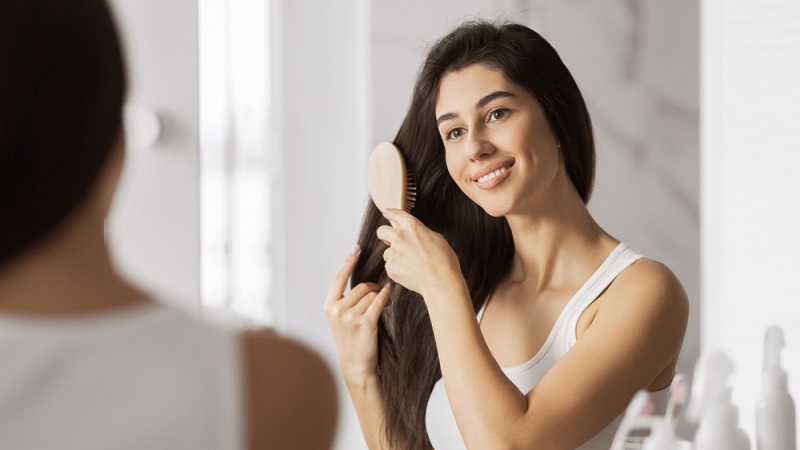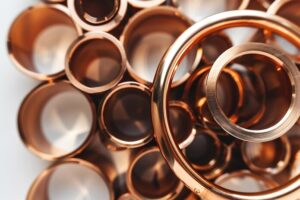
Hair is an integral part of the appearance and ultimate glory which requires proper care. Every type of hair needs protection from hair damage whether it is straight or curly, thick or thin, short or long. The high humidity level in summer can affect the hydration of the hair and leads to hair damage. So it is necessary to take care of hair during summer as well.
During summers, the moisture of the scalp does not retain and natural oils of the scalp also evaporate which make the hair dry, brittle and frayed. Sun damages the skin in the same way it also damages the hair. Hair follicles are also a special type of skin cells which are damaged by the sun. So a good summer hair care routine must be followed to prevent the hair damage.
Hair damage by Ultraviolet rays
The Ultraviolet rays of the sun cook the hair shaft. There are various signs of sun damage which includes discolouration of the hair, split ends, brittle strands, frizziness, decrease lustre, thinning and rough texture of hair. Sometimes, the damage is very high that leads to the production of super oxide which turns off the growth of hair follicles. The colour treated hair becomes dull, faded and bleached.
UV rays are also harmful to the hair which are not coloured. It breaks the keratin protein present in the hair (outer cover of the hair strands). It causes oxidation of the amino acids which ultimately cause the degradation of protein and makes the hair shaft rough.
Causes of hair damage
- Regular use of hot tools like blow dryers, curlers, flat irons may damage the cuticles of the hair.
- Over washing the hair can also lead to excessive hair loss because the natural oil of hairs is removed by over washing due to which the hairs become unhealthy.
- Improper diet leads to weak hair growth. Diet lacking proteins and vitamins even lead to hair damage and then hair loss.
- Tight hair ties pull the hair cuticles and scalp.
- Bleaching of the hair damages the keratin (hair protein) and hair cuticle.
- Vigorous combing in the wet and tangled hair leads to hair loss.
- Hair colour also damages the hair because it may contain certain chemicals which can break the disulphide bond in the hair.
- Lack of hair trims lead to the split ends and then breakage.
- Hypothyroidism leads to excessive hair damage and hair loss.
Methods for taking care of hair
- It’s very common to wash hair regularly in summer to get rid of sweat. So it is better to use the anti-residue and sulphate free shampoo once in a week and apply conditioner afterwards. The people having oily hairs can wash hair regularly but multiple washing in a day must be avoided.
- Regular use of blow dryers, curlers, flat irons, hair straighteners must be avoided because they may damage the hair.
- The hair must be protected from the chlorine present in the swimming pools because chlorine makes the hair dry and brittle. Before going into the pool, the hair must be adequately conditioned.
- Avoid using a large number of hair care products. Unnecessary use of hair wax, hair gel, hair spray makes hair unnatural.
- Instead of a brush, wide tooth comb must be used because it is the most gentle way to untangling the hair.
- Drinking plenty of water also helps to grow hair. It provides strength to the hair.
- For hair growth a vitamin-rich healthy diet must be included in the daily routine. It includes broccoli, salmon, milk, carrots, nuts, eggs, chicken, spinach. As these foods are rich in minerals, proteins, vitamins A, B, C, E with elements like copper, zinc, iron, magnesium which provides nourishment to the hair and keep the hair damage free.
Role of dietary supplements in hair growth
Many nutritional deficiencies lead to hair loss. So optimal regular intake of the nutrient is essential for proper hair care.
- Vitamin A leads to the production of sebum which moisturizes the hair and makes them healthy. So the food rich in vitamin A like carrot, spinach, sweet potatoes, pumpkins must be the part of the diet for healthy hair.
- Biotin supplement is used as an alternative treatment option for hair loss. Other vitamin B helps to carry the nutrients as well as oxygen to the hair follicles for the hair growth.
- Vitamin C is an anti-oxidant that helps in the reduction of oxidative stress by free radicals. It is also helpful to the production of collagen which is an essential component of hair.
- Vitamin D is helpful to create the small pores in the scar so that new hair can grow.
- Vitamin E is anti-oxidant which prevents free radicals and helps promote hair.
- Similarly, elements like iron, zinc and proteins are also an essential part of the diet for hair health. It nourishes the hair and makes the hair damage free.
Hair problems (dullness, hair loss) can be reduced by scalp massages from castor oil, olive oil, coconut oil. It helps to make the hairs thick and provides natural sun protection.
It contains proteins, minerals, Vitamin E, Omega-6 and 9 fatty acids and having antibacterial as well as antifungal properties. These essential oils have sufficient vitamins & minerals nutrients which helps to increase hair.
There are various hair supplements in the market which are rich in vitamins for hair growth. One of the best nutritional product for hair growth is Trichoedge nutritional support (sulphate free) which contains vitamin B12, B2, B6, B1, C, D3, E with essential amino acids, minerals and Soya Isoflavones.
- Vitamin A enhances sebum production in the scalp
- Vitamin B helps to maintain the healthy colour of the hair
- Vitamin E improves the blood circulation to maintain the productivity of hair follicles
- Soya isoflavones prevent thinning hair & hair fall
- Omega 3 fatty and amino acids provide nourishment to the hair



